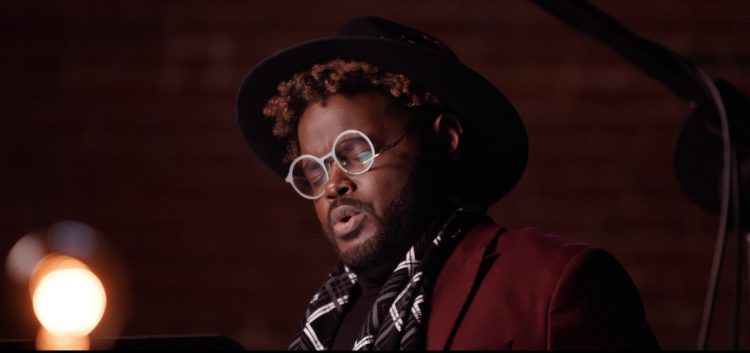by Gregory Moomjy
When Opera Philadelphia commissioned Tyshawn Sorey to compose Save the Boys, a 20-minute piece based on a poem by Frances Ellen Watkins Harper, they chose John Holiday to sing the premiere. Holiday is an example of that increasingly rare phenomenon in opera, a singer who has achieved mainstream success. His break came on NBC’s The Voice. For anyone who missed his much talked about entrance, a quick YouTube search will show how John Legend blocked Kelly Clarkson so he could be Holiday’s mentor.
So, just what is all the fuss about? Well, Holiday is a countertenor—the modern-day descendant of the castrati. These are fully developed men trained to sing in falsetto. For centuries, the phenomenon of a male singing in a traditionally female vocal register has captivated composers and audiences alike. Today, countertenors are typically associated with baroque repertoire. Back then, the castrati were used to portray mythic Gods and heroes as their otherwise unnatural voices seem the ideal fit to portray supernatural beings through music. However, castrati were also used to portray famed rulers, such as Julius Caesar. In that case, the high voice was not meant to portray effeminacy, but rather to characterize a ruler or noble figure who was in a mortal yet uncommon or otherworldly.
That tradition continues today in the form of countertenors singing roles like Philip Glass’s Akhenaten. Ancient Egyptian iconography depicted the Pharaoh as having both traditionally male and female sex-characteristics. (Whether this is an allusion to the Pharaoh’s divine oneness, or a depiction of actual sexual characteristics is another matter altogether.)
With that being said what makes John Holiday stand out is his lower register. For those who are not familiar with The Voice, when singers make their first appearance on the show, the judges are not facing the stage. Holiday has said that he made sure to display his low range just to ensure the judges knew that it was a man they were hearing.
Save the Boys is the setting of a poem by Frances Ellen Watkins Harper (1825-1911), who was an African American abolitionist and a voting rights activist from Baltimore who died in Philadelphia.
The text of the poem in which she pleads for a better future for black youth, is unfortunately just as pertinent today as it was when she wrote it in 1887. “Take from your streets those traps of hell / Into whose gilded snares I fell” shows that not much has changed and even in the 1880s young men could get swallowed up by the dangers of the street.
Sorey also wrote Cycles of My Being for Opera Philadelphia. There, what stood out is how organic the vocal writing was. He hardly wrote any standard aria that followed any recognizable form. Rather, the vocal line seemed to grow out of the text itself.
The same can be said for Save the Boys.
Sorey makes great use of Holiday’s lower register, showing off all the qualities of his truly rich voice.
There were many ornaments which recall gospel. These and other appoggiaturas Holiday handled with great technique; no doubt, due to his youth spent growing up in a Baptist church.
The piece gives listeners the feeling that they are eavesdropping on an intensely private moment, not unlike Dido’s Lament, ‘When I am laid in earth’ from Dido and Aeneas.
Everyone involved in this commission can congratulate themselves in creating a moving introspective piece. Hopefully, in the near future Opera Philadelphia should commission a full-scale opera from Sorey. It would be great to see his work onstage.

